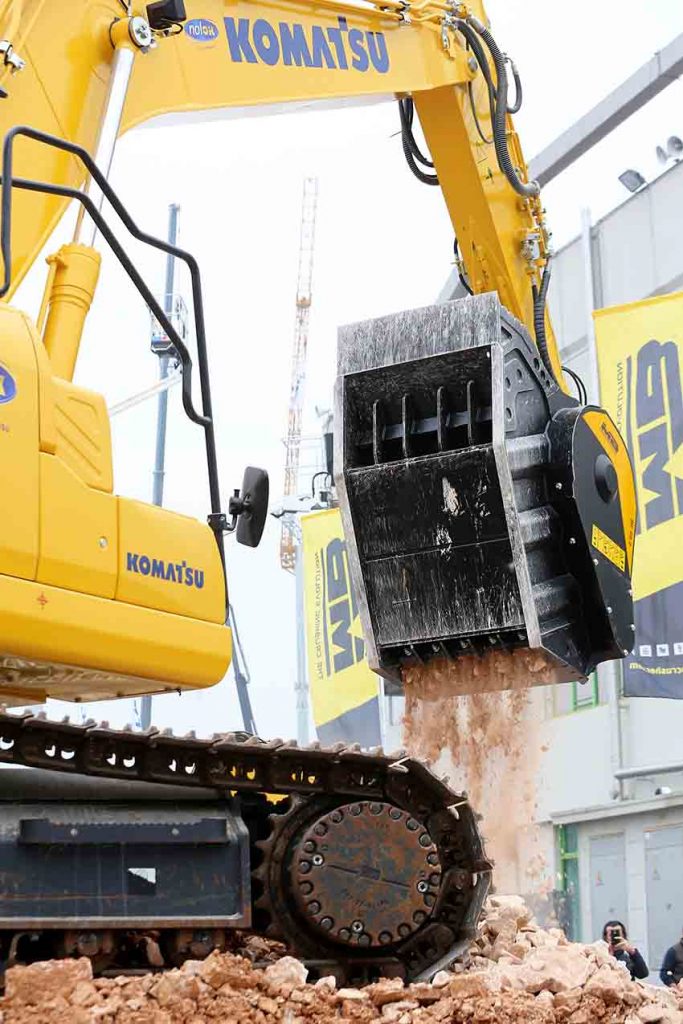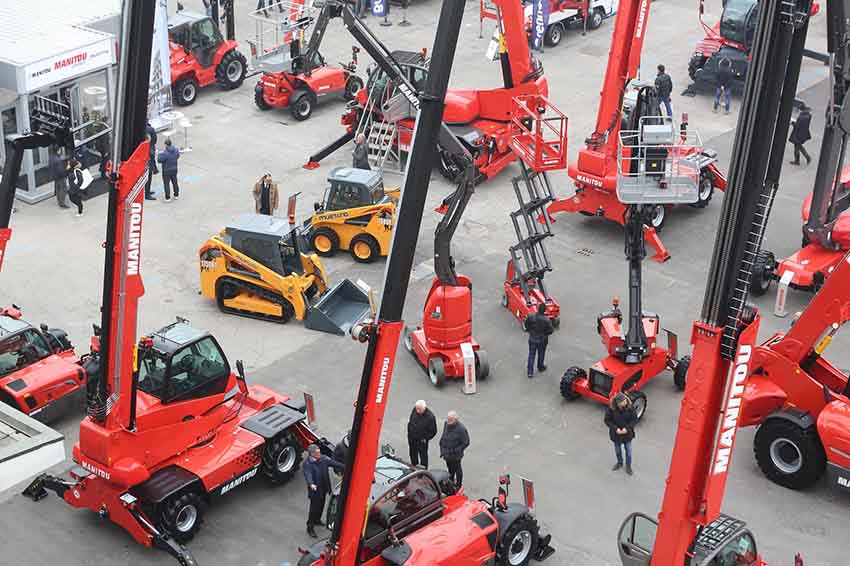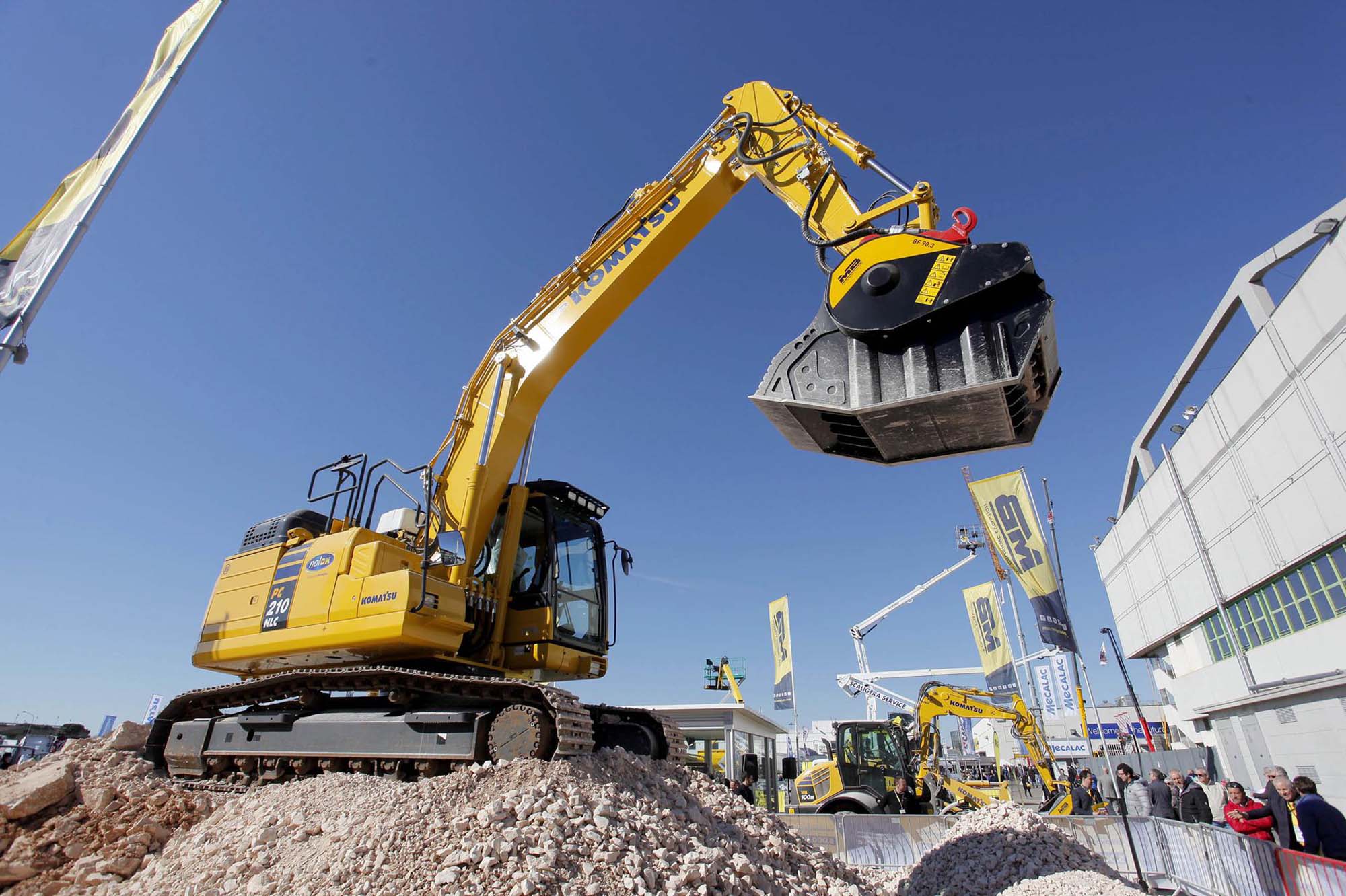The 31st edition of SaMoTer will be held in Veronafiere on 3-7 May 2023
The energy transition will be achieved together by working on the energy mix. This is what emerged on 26 January 2023 from the first of five webinars during the run-up to Samoter organized in collaboration with Vaielettrico with the title “Construction machinery towards the zero emissions goal: electric, hybrid or hydrogen?”
The event was opened by Sara Quotti Tubi, Agritech Area Manager Veronafiere S.p.A., who said: “We begin this journey with a discussion about innovation, the central theme of Samoter 2023 and, in particular, of Samoter Lab, a specific area set up Hall pavilion 12 focusing on energy and economic efficiency, digitization and sustainability, by now a major topic even for the world of construction machinery. It is a technological challenge with great prospects and significant problems that need solutions”.
As emerged from comments by the speakers, manufacturers are intensifying their efforts to develop products that are as green as possible, although at the moment there is no one technology that prevails over the others:

“In our experience,” said Giovanni Pellizza, JCB Marketing Director, “we have seen that electric is the solution for compact machines and in fact today we have a broad full-electric range and sell 1000 electric excavators per year. Yet for medium-large machinery, the problem of operating autonomy and battery dimensions come to the forefront: this is why we have been developing hydrogen technology for two years.”
Hydrogen – if it is to be sustainable – must also be green. However, as speakers agreed, its development, as for all innovations, requires infrastructure, demand, investments and incentives on the part of institutions. “Sustainability is not easy, nor is it immediate, but it can and must be achieved,” said Marco Paredi, Trencher Business Unit Director Tesmec. “In some European countries, machinery will have to be electric even as early as 2025 in order to work in urban contexts and, as a result, the electrification process cannot be halted. In our opinion, however, other avenues should not be ruled out. For example, bio-diesel is a solution already and immediately available, as well as in line with sustainability and circular economy objectives.”

“We have to improve working conditions in our sector and equipment also plays an important role in this context,” said Fabio Ghedini, Owner of Ghedini Attachments. ” We have embraced the electric philosophy in the belief that it is the best possible solution in urban settings and have therefore filed patents and built prototypes. To develop our attachments, however, machinery must also to be truly electric and equipped with efficient batteries.”
“We all have to struggle against climate change but it should also be noted that machinery is responsible for emissions to a limited extent,” said Emanuele Viel, Group Manager Utility Electrification Team Member Komatsu. “The aim of our environmental policy follows the United Nations agenda: reduce CO2 emissions by 2030 by 50% and 100% by 2050. We must therefore intervene on machinery and technologies, as well processes and factories. While hydrogen will play a fundamental role in the future, Komatsu believes that the present is hybrid – this technology, compared to conventional systems, reduces emissions on average by 30%. If the entire market were hybrid, this would be an impressive result.”

Upcoming webinars
The second webinar in the run-up to Samoter is scheduled on Wednesday 15 February and will discuss the topic “Earthmoving and digital. A waste of time?”
Subsequent webinars will focus on safety, the role of modern rental in the construction chain and will conclude with the webinar discussing photovoltaics in quarries.

